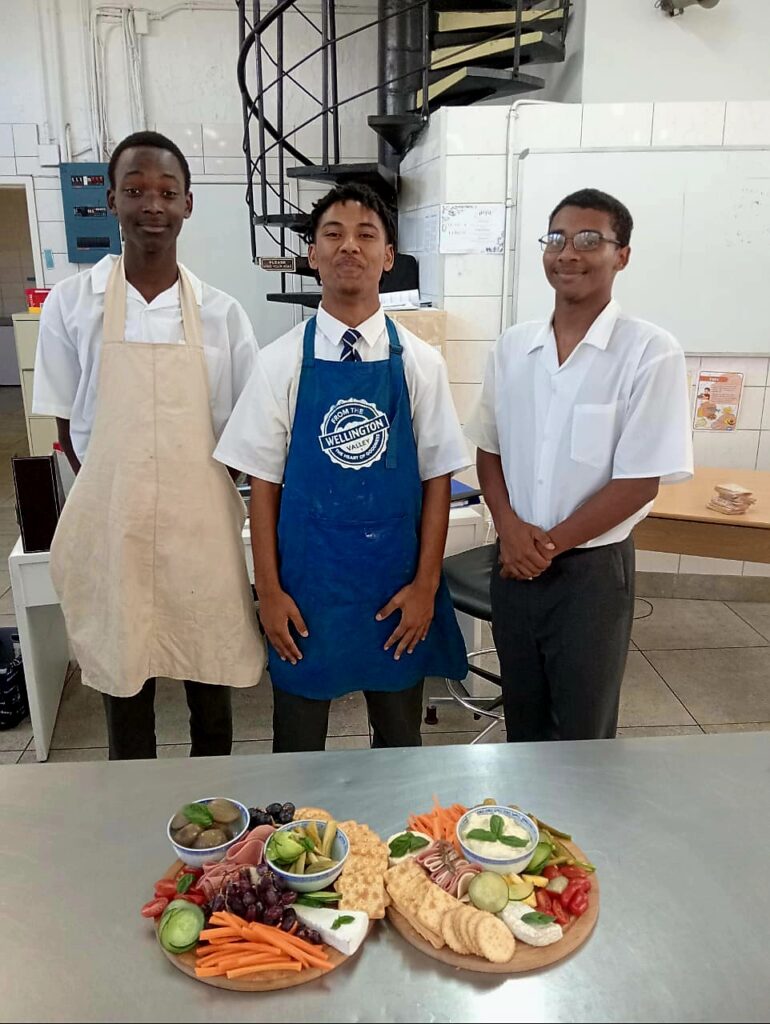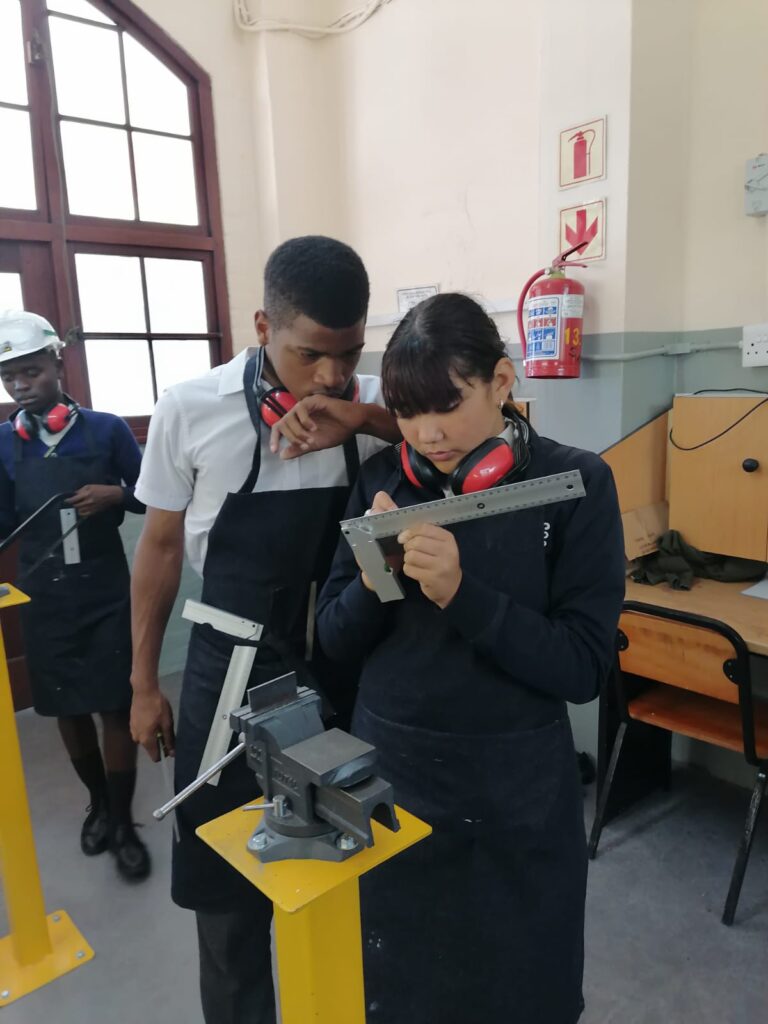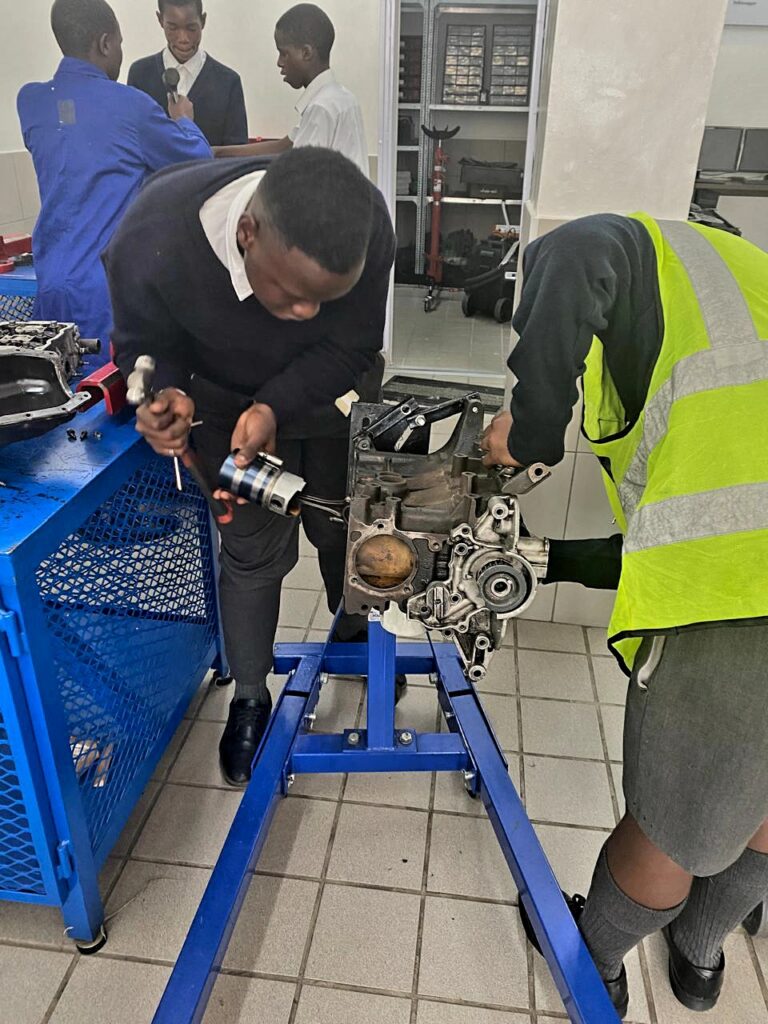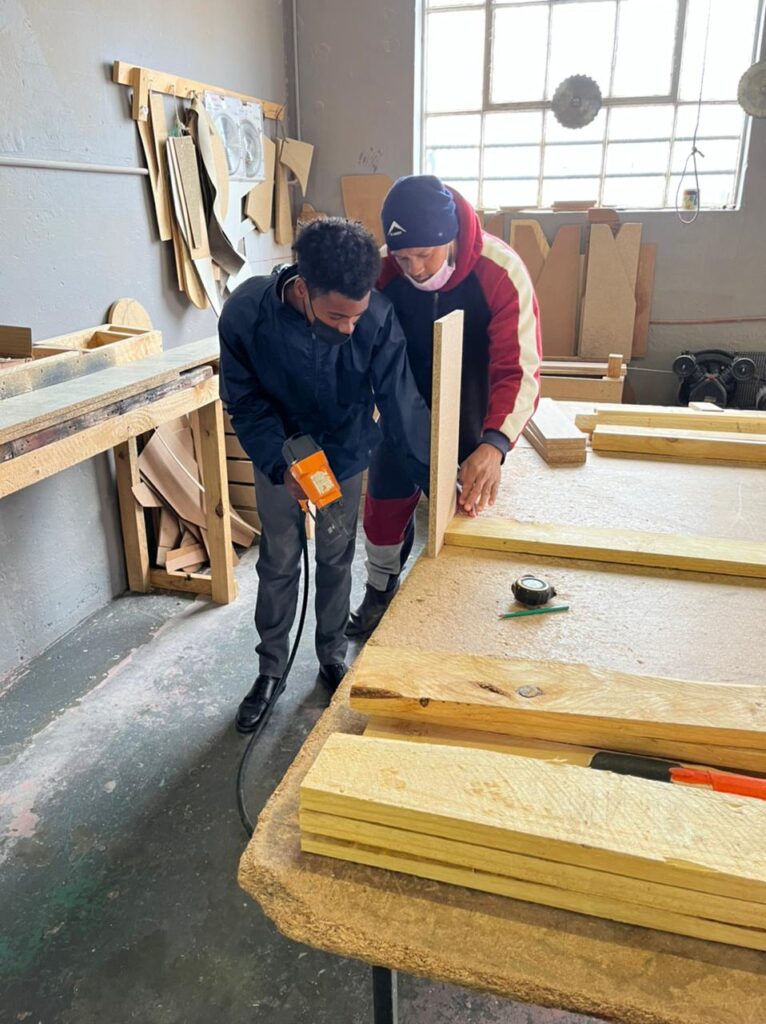School Overview
The Learn to Live School of Skills has been registered with the Western Cape Education Department since 2013 as an independent school and follows the curriculum for Schools of Skills.
This school is dedicated to serving learners aged 14 to 18 who due to challenging socio-economic circumstances, find it difficult to access or adapt to conventional mainstream education. At the heart of our teaching methodology is Project-Based Learning (PBL). This approach enables us to cater more effectively to the unique needs of our students, aligning their education with the requirements of the workplace.
Our Learn to Live Programme places a strong emphasis on vocational training. Our vision is to prepare and equip students to thrive in the workplace. Even if immediate job placements are not available, our learners will hopefully develop their self-confidence and skills to create their own opportunities and build their future.
LIFESKILLS plays an integral role in our educational curriculum. Students engage in individual presentations and group activities, which are continuously assessed throughout the year. During the course of the year, the Year 4 students compile and organize evidence of their learning into a Portfolio of Evidence.

Class sizes typically range from 26 to 36 students, while the workshops accommodate 14 to 20 students per lesson. Learners who are unable to read are added to the Literacy Programme which equips them with essential literacy skills, a vital requirement in the modern workplace. This is an Intervention Project that effectively addresses reading difficulties, enabling learners to read independently with comprehension, reducing anxiety, and better preparing them for a successful transition into independent adulthood. Additionally, we are integrating Computer Literacy training through our Smart Work Centre to ensure that our learners possess basic computer skills upon program completion.
Our four-year educational curriculum follows the guidelines of the Western Cape Department of Education’s (CAPS) Curriculum for Schools of Skills. Entrepreneurship is promoted throughout the programme, with a focus on empowering our learners to transform their skills into viable ventures that can provide sustainable financial support.
All our teachers are fully qualified and registered with SACE (South African Council for Educators), including our vocational workshop facilitators.
We employ a comprehensive and holistic approach that includes essential psycho-social support. This is facilitated through the presence of a dedicated Social Worker and a full-time Occupational Therapist.
Our commitment to nurturing the learners goes beyond academics and vocational skills.
The school encourages learners to engage in extracurricular activities, fostering a well-rounded education. These activities encompass sports, and music, with the added vibrancy of an active marimba band and a dynamic choir. This ensures that our learners have opportunities to use their natural talents.
After graduating, our learners have the option to continue with learnerships, seek employment, start their own small businesses, or participate in one of our other specialized programmes. We are committed to equipping our graduates with the skills and confidence they need to pursue successful and fulfilling futures.
Vocational Workshops
Hospitality

Electrical

Hairdressing

Auto-Mechanical

Woodwork

At our institution, we proudly embrace a non-denominational approach in our admissions process, striving to create a diverse and inclusive educational community. Our philosophy is firmly rooted in the values of inclusivity, and we are committed to building strong partnerships with the parents and guardians of our learners. We believe that by working closely with families, we can foster a supportive and collaborative educational environment that benefits each and every student in our care.
In keeping with the ethos of the Salesians of Don Bosco worldwide, we also hold a deep concern for the spiritual growth of our learners. The Learn to Live School forms part of the global network of 3,645 Salesian schools spread over 135 countries and falls under the umbrella of the Catholic Schools network at the National and Archdiocesan level.
